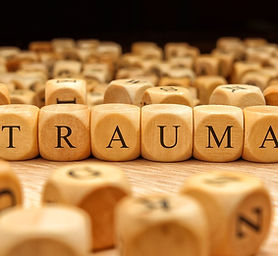The OAD Clinic
What is Post Traumatic Stress Disorder?
Psychological trauma is the emotional and cognitive reaction to deeply distressing events. It has been studied and treated since the late XIX century, and today, this condition is known as Post Traumatic Stress Disorder (PTSD).
Standalone traumatic events can be recognised (e.g. war, assault, natural disaster or a life-threatening illness). However trauma can also stem from continual emotional, sexual or physical abuse that are part of the person’s everyday life. Such trauma is usually identified later in life, when the survivor seeks help to treat the enduring mental scars.
The traumatic experience, whether one-off or continual, leaves the survivor feeling overwhelming anger or helplessness that is almost impossible to process. Anxiety, panic attacks and depression persist long after the events, and it is not unusual to turn to alcohol or drugs in an attempt to cope. In trying to manage these intense feelings, the individual becomes detached, withdrawn and emotionally numb.
If you’re in search of personalised PTSD treatment in the UK, The OAD Clinic’s PTSD treatment clinic is the perfect place to receive PTSD treatment in London. We provide treatment for PTSD in the UK that is tailored to patients’ individual needs and preferences.

What are the symptoms of PTSD?
Post-Traumatic Stress Disorder (PTSD) can affect people in complex and deeply personal ways. While some individuals may experience immediate psychological distress following a traumatic event, others may not notice symptoms until weeks or even months later.
Common Symptoms of PTSD
-
Sleep disturbances such as insomnia or frequent nightmares
-
Intrusive thoughts or flashbacks related to the traumatic event
-
Emotional numbness or detachment from others
-
Hypervigilance, irritability, or being easily startled
-
Difficulty concentrating and short-term memory issues
-
Intense mood swings, including sadness, anger, or hopelessness
-
Avoidance behaviours, such as steering clear of people or places that serve as reminders
The course of symptoms can be unpredictable. Many individuals describe alternating between "good days" when symptoms feel manageable and "bad days," when symptoms resurface intensely, disrupting their daily lives. These experiences can leave emotional scars that lead to more complex mental health conditions, including depression, substance misuse, or personality disorders.
If you're experiencing symptoms, taking a PTSD test can be a helpful first step toward understanding your condition and exploring treatment options.
How do we treat PTSD?
PTSD is one of the most disabling anxiety disorders, and effective treatment often requires a multi-faceted approach. A one-size-fits-all method rarely works, as PTSD often coexists with other mental health challenges such as addiction, depression, or anxiety.
Our Approach to PTSD Treatment
-
Comprehensive Assessment
Treatment begins with a thorough psychiatric evaluation to determine the nature and severity of symptoms. This helps us identify whether PTSD is the primary condition or if it is linked to other diagnoses, such as substance use or personality disorders.
-
Therapeutic Interventions
- Cognitive Behavioural Therapy (CBT) helps individuals reframe negative thought patterns and develop healthy coping strategies.
- Eye Movement Desensitisation and Reprocessing (EMDR) is a neuropsychological technique that has shown success in reprocessing traumatic memories.
- Individual and family therapy foster communication, emotional healing, and support systems.
- Medication management may be recommended to alleviate insomnia, depression, or heightened anxiety.
-
Addressing Complex PTSD
In cases where trauma is ongoing or has occurred over a long period (e.g., childhood abuse, repeated trauma), complex PTSD may be diagnosed. These cases require a longer, more tailored therapeutic plan that goes beyond standard interventions.
Our integrated approach ensures patients receive personalised care based on their unique experiences. If you're unsure whether your symptoms align with PTSD, consider taking our confidential PTSD test a first step in getting the support you deserve.
Take the first step toward healing. Reach out today and let our specialists guide you through your PTSD recovery journey.
Countries We Serve
If you require PTSD treatment and are from one of the following countries: Egypt, India, Kuwait, Saudi Arabia, and United Arab Emirates, then we encourage you to seek treatment at our clinic in London. Receive PTSD treatment tailored to your needs at The OAD Clinic. Get in touch with us to learn more.
